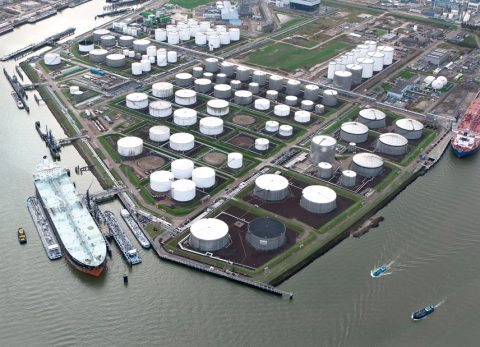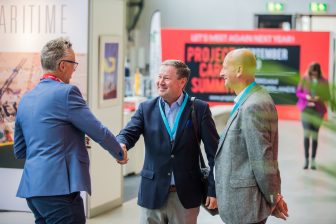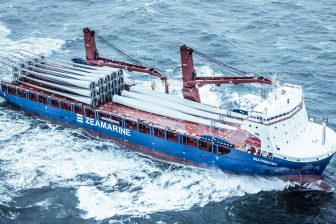
Maersk and Koole Terminals to produce IMO 2020 fuel in Rotterdam
Maersk Oil Trading and Koole Terminals have signed an agreement to produce IMO 2020-compliant bunker fuel in the port of Rotterdam. The annual production is expected to cover 5-10% of Maersk’s annual fuel demand.
The production will take place at the Petrochemical Industrial Distillation (PID) unit, located at Koole’s Botlek site in the heart of the port. The toll distillation deal allows Maersk to produce very low sulphur fuel oil (VLSFO) bunker fuel and will enable the company to further expand its bunker supply volumes in Europe.
“The fuel manufacturing process allows Maersk to produce compatible low sulphur fuels that comply with the IMO 2020 sulphur cap implementation, reducing the need to rely on 0.1% price-based gasoil and fuel oil outside the ECA zones,” said Niels Henrik Lindegaard, Head of Maersk Oil Trading at A.P. Moller – Maersk. He added that the deal with Koole will be an important driver in ensuring stable, reliable services for Maersk’s customers during a potentially volatile period for global shipping.
The IMO 2020 0.5% sulphur fuel cap will be implemented globally as of 1 January 2020. Bunker fuels within the ECA (Emission Control Area) zones will remain at the current cap of 0.1% sulphur. At Koole’s PID unit, Maersk will also be able to produce 0.1% sulphur fuel.
Breakbulk shipping
The implementation of the IMO 2020 Sulphur Cap is the biggest regulatory change in the maritime sector in decades. Whichever way shipping companies are planning to comply, their costs will rise significantly as a result of the new rules. Those costs will ultimately be paid by the customers, although analysts doubt whether the shipping companies will manage to recuperate the full amount.
In multipurpose shipping, Zeaborn has been the only company yet to announce how exactly it will recover the extra costs from its customer. As per the beginning of this month, Zeamarine has introduced a Low Sulphur Surcharge of USD 35 per freight ton for its liner services. For all tramp services commencing on or after September 1st, a new bunker adjustment clause will be put in place.
Zeamarine’s surcharge is the first clear evidence of the extra costs shippers can expect. It also shows that transport costs will rise significantly. For example, the extra costs to ship one of GE’s new 12MW wind turbines weighing 713 tons, would amount to USD 24,995. And that is just for one shipment.
The implementation of the IMO 2020 sulphur cap will be one of the key topics of the breakbulk shipping panel at the Project Cargo Summit 2019, which Promedia is organising in Rotterdam on the 11th and 12th of September. Among the panel members are G2 Ocean and Wallenius Wilhelmsen.
Project Cargo Summit
The implementation of the IMO 2020 sulphur cap is a key topic of the Project Cargo Summit, a two-day international conference about the transport of large and heavy cargoes, which is organised by Promedia Group on the 11th & 12th of September, 2019 in Rotterdam.
In a shipping panel with industry leading companies like G2 Ocean and Wallenius Wilhelmsen, we’ll talk at length about how breakbulk shipping companies will recover the extra costs of the new legislation.
To reserve a seat, click here. For more information about this dedicated project cargo and heavy-lift event, please visit www.projectcargosummit.com.



